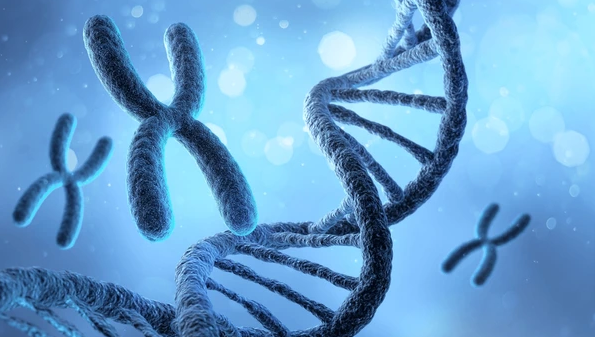
The Y chromosome carries the SRY gene which functions as a vital determinant for male sex development since it starts the formation of testes and generates testosterone. A male-specific development occurs during normal conditions when the gene exists yet female development occurs when the gene does not exist. The occurrence of SRY gene transmission from female origin through genetic mutations stands as an exceptional situation that contradicts previous models identifying sex determination.
Overview of Sex Determination
-
Biological Process: Sex determination defines whether an embryo develops as male or female.
-
Genetic Influence: Governed by sex chromosomes (XX for females, XY for males) and hormonal regulation.
-
Sperm carries either an X or Y chromosome thus determining the sexual nature of the developing baby.
Role of the SRY Gene
-
Found on the Y chromosome, crucial for male development.
-
This gene structure activates genes that build testicles while producing testosterone as a result.
-
A nonfunctional SRY gene causes the embryo to develop as a female because it lacks the required male regulatory functions.
SRY Gene in Sex Determination
-
The presence of a functional SRY gene triggers male characteristics because it initiates testicular development but the absence of this gene leads to female development pathways.
-
Sex development variations occur during rare instances when SRY gene mutations cause the gene to relocate onto the X chromosome.
Rare Cases of SRY Gene in Females
-
People with an X chromosome containing SRY become physical males and fail to reproduce despite their masculine phenotype.
-
Females with an SRY-positive genotype (XX) represent uncommon cases that develop typically because the X chromosome inactivates the SRY gene.
-
Italian and American research discovered biological female patients who carried the SRY gene which produced unexpected findings about traditional sex determination concepts.
Conclusion
Widespread scientific understanding of sex determination became harder after researchers detected SRY-positive female subjects who emerged despite conventional XX (female) and XY (male) genetic classification patterns. The research discoveries about genetic mutations indicate paths for scientists to explore the developmental effects in human sex formation which improves our comprehension of different sex characteristics.



 VoxelGrids Launches India’s First Made-in-India MRI Scanner: A Breakthrough in Medical Imaging
VoxelGrids Launches India’s First Made-in-India MRI Scanner: A Breakthrough in Medical Imaging ISRO's LVM3-M6 Mission: Launching the Heaviest Satellite from Indian Soil
ISRO's LVM3-M6 Mission: Launching the Heaviest Satellite from Indian Soil Indian Coast Guard Inducts First Pollution Control Vessel Samudra Pratap
Indian Coast Guard Inducts First Pollution Control Vessel Samudra Pratap ISRO to launch U.S. satellite on December 24
ISRO to launch U.S. satellite on December 24 Google’s Project Suncatcher Aims to Scale AI Data Centres in Space
Google’s Project Suncatcher Aims to Scale AI Data Centres in Space India's First Hydrogen-Powered Train Coach Successfully Tested at ICF Chennai
India's First Hydrogen-Powered Train Coach Successfully Tested at ICF Chennai India’s BharatGen AI System Initiative
India’s BharatGen AI System Initiative IIA Marks 10 Years of UVIT Operations on AstroSat
IIA Marks 10 Years of UVIT Operations on AstroSat PM Modi to Launch Skyroot’s Multi-Launch Vehicle Facility
PM Modi to Launch Skyroot’s Multi-Launch Vehicle Facility OmanSat-1 Oman’s First National Communications Satellite Launched Successfully
OmanSat-1 Oman’s First National Communications Satellite Launched Successfully






